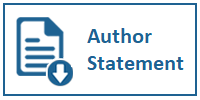Daya Komunikasi Paham Multikulturalisme Kritis di Ranah Politik Daring dalam Konteks Indonesia
DOI:
https://doi.org/10.31937/ultimacomm.v3i2.196Abstract
Indonesia is a fertile ground for flourishing respect towards differences as well as nurturing diversity, considering its unique history and genealogy of its formation. Despite the progress of information and communication technology for the last two decades, added with the emergence of informational politics or online politics after the reformation era 1998, there arose several radical groups and extreme social organization threatening the very foundation of multiculturalism in Indonesia, namely the freedom of religion/belief. Through analyzing and synthesizing the framework of critical multiculturalism and online politics, this research results in producing four parameters (accessibility, interactivity, criticality, solidarity) to measure the level of pro and anti-multiculturalism within certain websites. Here, the role and influence of sympathetic communication power is highly important because online politics depend more on the soft power rather than hard power, rational persuasion in communicative action framework rather than physical violence and politics-by-mass movement. Critical multiculturalism is properly needed in an era of information proliferation and easy access to various power relations. For the sake of a better future, critical multiculturalism should participate further and deeper in the context of emancipation, empowerment, and struggle for justice, especially justice for "those who have no voice, those who toil, those who live unappreciated, and those who die in silence.”
Keywords: multiculturalism, critical multiculturalism, online politics, informational politics,
Communication Power, "accesibility, interactivity, criticality and solidarity” parameters
Downloads
Downloads
Published
How to Cite
Issue
Section
License
Ultimacomm Jurnal Ilmu Komunikasi allows readers to read, download, copy, distribute, print, search, or link to its articles' full texts and allows readers to use them for any other lawful purpose. The journal allows the author(s) to hold the copyright without restrictions. Finally, the journal allows the author(s) to retain publishing rights without restrictions
1. Authors are allowed to archive their submitted article in an open access repository
2. Authors are allowed to archive the final published article in an open access repository with an acknowledgment of its initial publication in this journal














